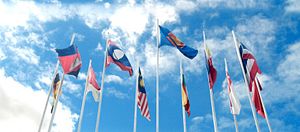The effort in the Philippines to ban online media outlet Rappler has sounded further alarm bells across a region that is already dogged by increasing censorship and a growing intolerance of criticism or dissent.
Rappler had grown in stature in recent years, particularly with its reporting on President Rodrigo Duterte and his policies, including the headline-grabbing war on drugs, which has claimed thousands of lives.
Duterte’s government and the National Press Club of the Philippines have justified the move against Rappler by arguing the website was foreign funded. According to the Securities and Exchange Commission, this violated constitutional restrictions on the media.
Notably, no one seemed notice any such anomalies before issues arose surrounding its coverage of Duterte after his assumption of the presidency in mid-2016.
It also must be said that it is difficult to swallow the constitutional argument given the government’s own disregard for legality on several fronts, chief among them the extrajudicial killings conducted as part of the war on drugs.
Perceptions have not been helped by Duterte’s overall attitude toward independent journalists and his strongman tendencies more generally.
Reporters Without Borders has led the international chorus against Rappler’s silencing. It wants various organizations including the United Nations and ASEAN to stand up to the Philippine government over its decision.
Such calls are unlikely to find much traction in ASEAN, particularly given the fact that other Southeast Asian states have concerns of their own in terms of democracy and human rights.
The effort to ban Rappler follows the arrest of two Reuters journalists in Myanmar for spying, a charge all involved strenuously deny, and the closure of some media outlets in Cambodia, where journalists are facing a slew of criminal charges. One Australian filmmaker has also been charged with spying.
Germany’s expulsion of a Vietnamese diplomat after it accused Hanoi of abducting businessman Trinh Xuan Thanh from a Berlin park highlighted the lengths and risks some members of ASEAN are prepared to take in order to get what they want.
This is unfortunately an all too familiar state of affairs for seasoned observers of the region. But even as these rights concerns continue to be seen across Southeast Asia, people in Southeast Asia are also better educated and more well-informed than their aging leaders. They also have unprecedented access to cheap communications and online media outlets that governments would like to control but simply can’t.
Operations like Rappler and others have various options available to them, from fighting off charges to reemerging under different banners to moving offshore for a while and making it even harder for governments to have their voice heard. When they do so, governments will have to rely on state-controlled or state-friendly press, which will compound credibility issues among a distrusting public, thereby further increasing their propensity to turn to the very alternative media outlets the government tries to silence.
Luke Hunt can be followed on Twitter @lukeanthonyhunt.

































